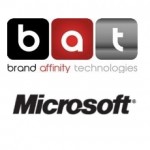 Mountain View, California — Search engine behemoth Google Inc., in an attempt to lure more corporate customers into its online Google Apps fold, now makes it more appealing by unveiling a new service that will deliver Gmail and Google Calendar that works well on BlackBerry mobile devices, escalating the search giant’s campaigns in the enterprise marketplace.
Mountain View, California — Search engine behemoth Google Inc., in an attempt to lure more corporate customers into its online Google Apps fold, now makes it more appealing by unveiling a new service that will deliver Gmail and Google Calendar that works well on BlackBerry mobile devices, escalating the search giant’s campaigns in the enterprise marketplace.
Google Apps’ e-mail and calendar services now get along better with BlackBerry phones. (Credit: Google)
The company late today unveiled the Google Apps Connector for BlackBerry Enterprise Server, which is now in beta and slated to be available in July.
Beginning today, corporate users can program their BlackBerry devices to access mail from Google’s Gmail service, a part of Google Apps, but comparatively it only functions in a very basic form. With a new product called–brace yourself–Google Apps Connector for Blackberry Enterprise Server, the company is adding much tighter integration with Research in Motion’s BlackBerry technology.
Specifically, the connector is engineered to make it easier for people with Blackberries to access hosted applications like Gmail, Google Calendar and Contacts. The new tool also integrates attributes in the Google applications work with built-in BlackBerry applications, empowering users, for instance, to receive Gmail messages via the BlackBerry smartphone’s built-in email client.

The connector also synchronizes mail so a message marked as read on the BlackBerry will show that way on Gmail, and vice-versa, said Raju Gulabani, project management director for Google Apps. It also means people will be able to star, archive, and file messages in folders in either location.
Additionally, people’s BlackBerries will be able to tap into corporate contact information, allowing people to utilize the device to retrieve e-mail addresses or phone numbers from the company directory.
The service will be enclosed with the Premier and Education editions of Google Apps. And calendar entries will be transferred to the device — though people would not be able to accept event invitations with the device until an update to the software is issued later this year, he said.
“In terms of the features we are delivering, it is not just nice to have, it is pretty critical,” Gulabani said, because it means Google Apps users will get the full BlackBerry experience.
Dan Olds, principle analyst with the Gabriel Consulting Group, called this a smart move for a company eager to bulk up its business presence.
“This is going to make it a lot more easier for Blackberry people to use Gmail accounts and Google calendar,” he added. “I believe this is a big market for Google. If they are going to offer Gmail and other applications, it is certainly in their best interest to make them run on as many devices as possible and Blackberry is a big one. We know they want to get into the corporate market more and become sort of an enterprise replacement for Microsoft and Exchange. This gives them a more compelling story toward this end.”
Olds continued said, a lot of people will find it useful to have their calendar automatically updated on their Blackberry when it is updated on their computer and vice versa. “This is just going to make it easier on people,” he said. “That is a handy thing. Anything you do in Google calendar gets into your Blackberry, and your contacts will be synchronized as well. It is just useful.”
The service requires organizations to include a piece of software to their BlackBerry Enterprise Server (BES), and that software is available today only for the Microsoft Exchange version of BES. The software connects back to Google’s mail servers, rather than the company’s Exchange server, to synchronize mail, contacts and calendar items.
Moreover, the service will initially support only 250 users per BES. A BES can typically handle at least 500 users, sometimes many more. If an enterprise wants to support more than 250 Google Apps users it will have to use an additional BES.
One reason for launching this service is because Google aims to make it easier for companies to switch from their own e-mail, contacts, and calendar systems — Microsoft Exchange being the most prominent example — to the Google-hosted replacement. “We want to make that transition easier for corporate IT administrators, and make it easier to deploy Google apps. One way is by giving them existing interfaces,” so they do not have to use Google-specific software such as the downloadable Gmail for Mobile application for BlackBerry devices, Gulabani said.
“Admins are given full control of the solution and can continue to manage BlackBerry smartphones using BlackBerry Enterprise Server,” he wrote. “Google Apps Connector installs on BlackBerry Enterprise Server, connecting it to the Google Apps cloud and synchronizing email, calendar and contacts for all BlackBerry smartphone users.”
Google Apps consists of a number of online services: e-mail, calendar, and the Google Docs suite for word processing, spreadsheets, forms, and presentations. Google Apps Standard Edition is free but limited to customers with 50 or fewer accounts; the Premier Edition costs $50 per user per year but does not have those limits. Google also offers a free version for customers in education that does not have any user limits.
Google plans to update the service over time, by improving the end-user experience and increasing the number of users that can be supported on a BES server, Gulabani said.
The BlackBerry connector software comes free with the Premier or Education editions, Gulabani said.
However, some functions of the beta version available today does not work smoothly with the BlackBerry. For example, calendar item reminders that appear in a user’s inbox are formatted awkwardly, with what appear to be images that do not load properly.


